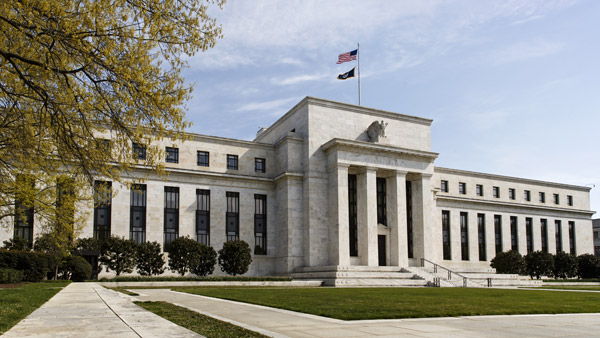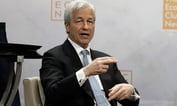 The Federal Reserve building in Washington (Photo; AP)
The Federal Reserve building in Washington (Photo; AP)
Federal Reserve watchers said the central bank will abandon its patient policy stance and cut interest rates in coming months as President Donald Trump’s planned new tariffs on Mexican goods may drag down U.S. economic growth.
JPMorgan Chase & Co. chief U.S. economist Michael Feroli now projects quarter-point rate reductions in September and December, while Barclays Plc’s Michael Gapen sees a half-point cut in September followed by another quarter-point by year-end.
NatWest Markets economists and former Fed Governor Laurence Meyer also said the central bank will act to bolster an economy that is being buffeted by trade tensions and other headwinds.
“Even if a deal is quickly reached with Mexico, which seems plausible, the damage to business confidence could be lasting, with consequences that might still require a Fed response,’’ Feroli said in a note to clients on Friday.
President Donald Trump said late Thursday that the U.S. would put 5% duties on all Mexican imports on June 10, rising in increments to 25% in October, unless Mexico halts “illegal migrants” heading to the U.S. Stocks fell on the news and investors increased bets that the central bank would ease policy this year.








 May 31, 2019 at 03:30 PM
May 31, 2019 at 03:30 PM












 Copyright © 2024 ALM Global, LLC. All Rights Reserved.
Copyright © 2024 ALM Global, LLC. All Rights Reserved.